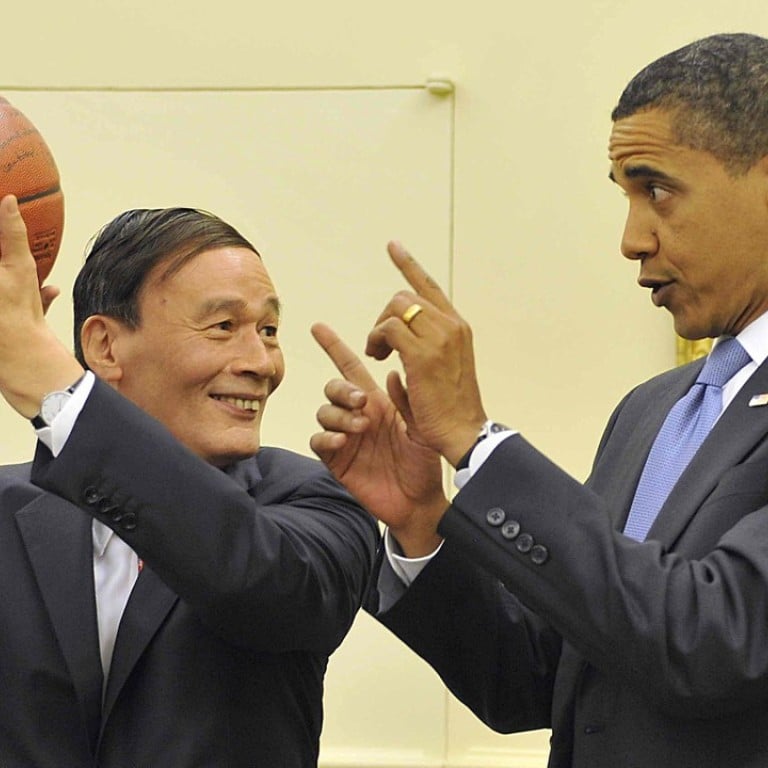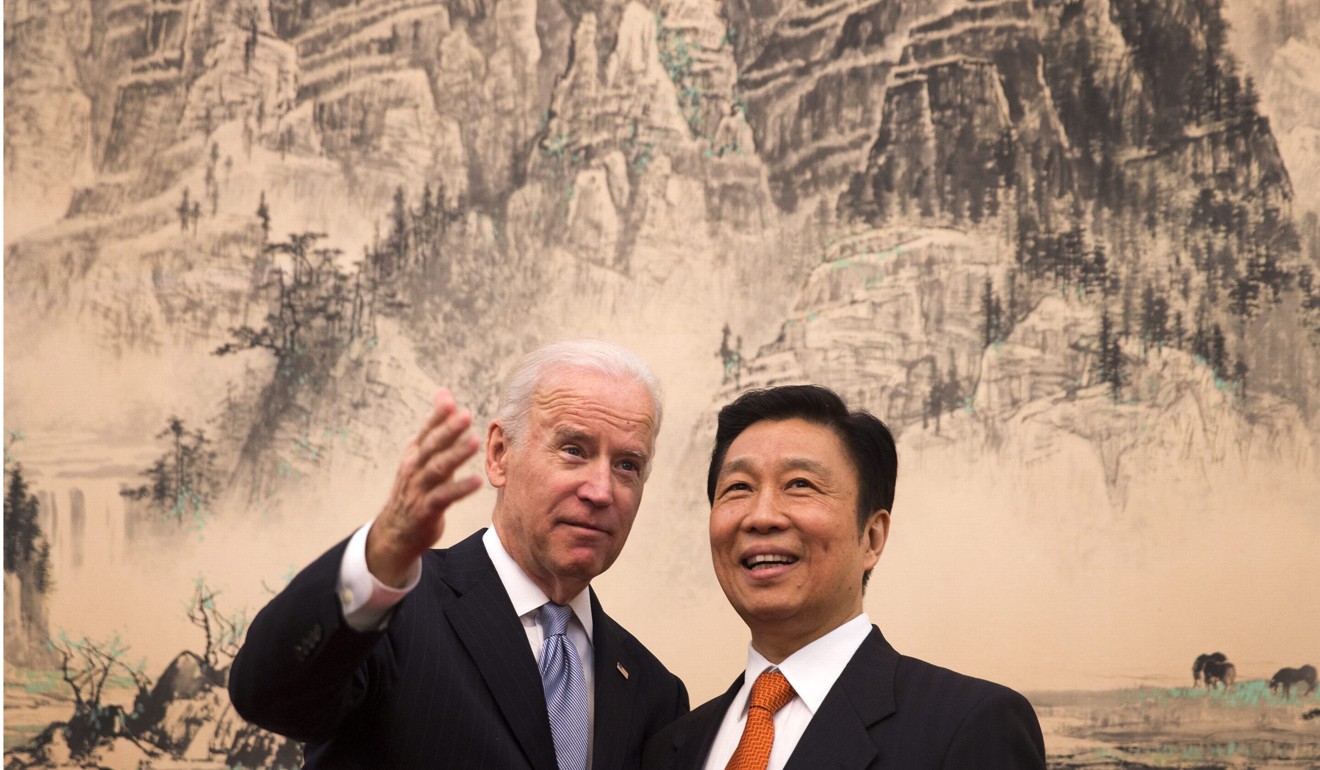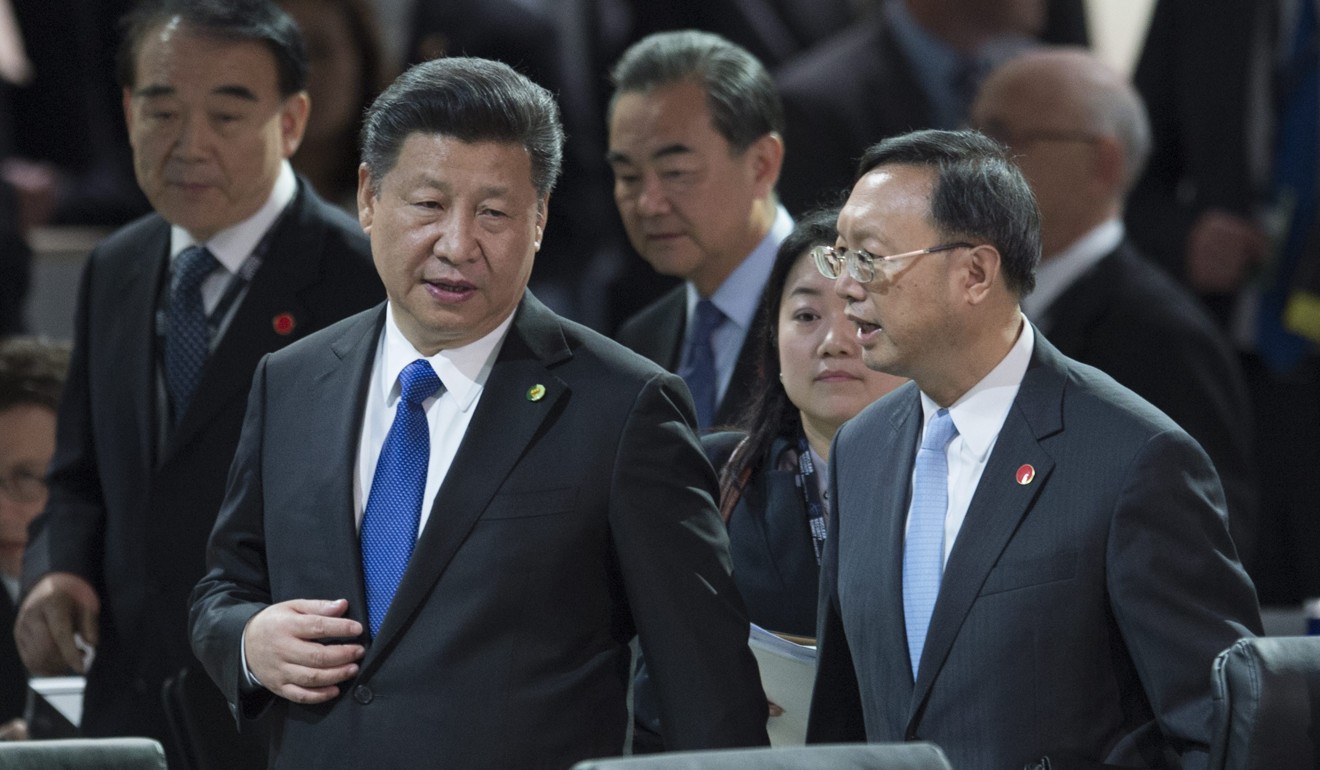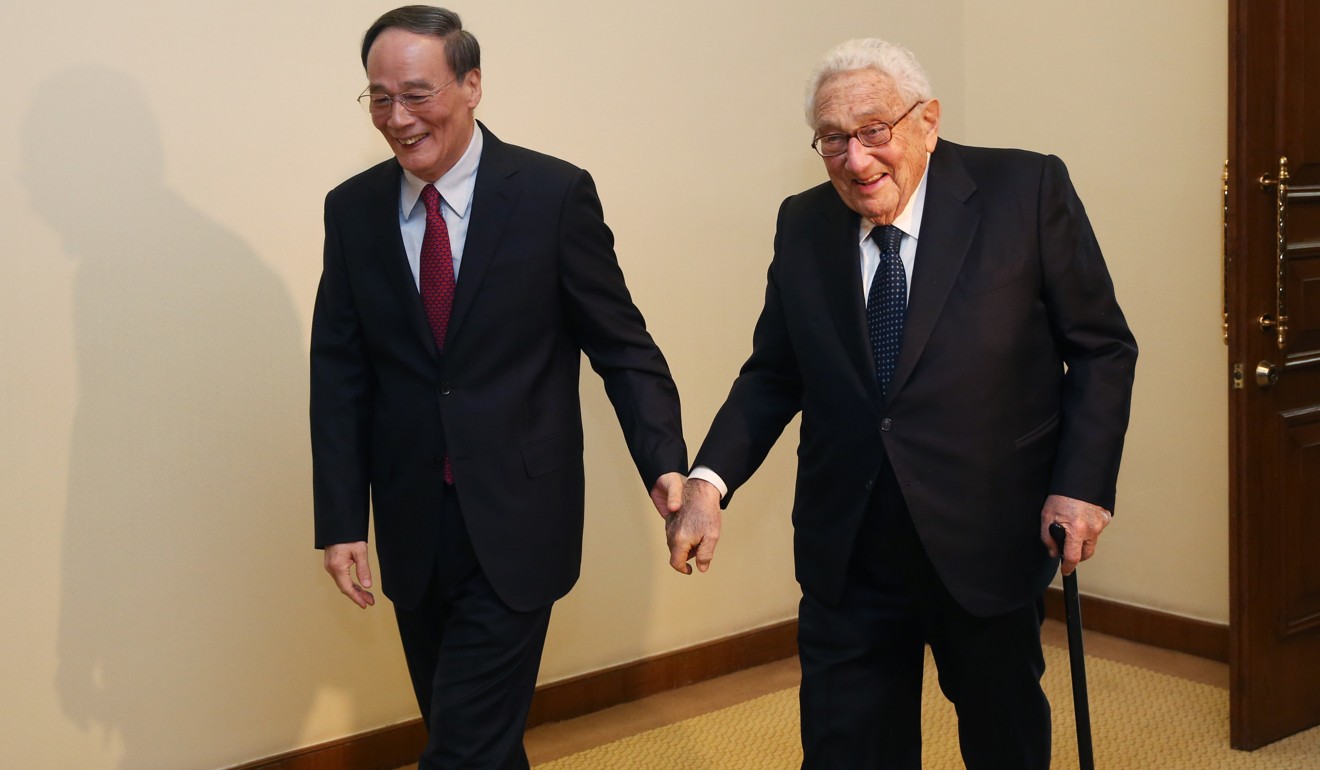
Can China’s ‘firefighter’ Wang Qishan break the deadlock with US over trade?
‘Pragmatic’ former anti-graft tsar is expected to take on the vice-president job as Beijing looks to shift gear on diplomacy to cope with a more hawkish US
Foreign diplomats and businesspeople expect China’s former anti-graft tsar to play a key role in de-escalating trade tensions with the United States, and that he could also get global relations higher up the nation’s policymaking agenda.
Containing tensions with Washington and other economic trouble spots are expected to be the top priorities for Wang Qishan – known for his “firefighting” skills and ability to handle the tough tasks – when he takes charge of diplomatic issues as China’s new vice-president, a role he is expected to be handed on Saturday.
The 69-year-old’s return to the top hierarchy comes as Beijing looks to shift gear on diplomacy to cope with a more hawkish US administration under President Donald Trump and also as Beijing is becoming more assertive.
The National People’s Congress, the legislature, will elect the new vice-president on Saturday morning, with Wang highly likely to replace Li Yuanchao – and in the process add substance to what has been a largely ceremonial position, especially given the US mission.

Five years ago, President Xi Jinping chose Wang to lead the ruling Communist Party’s anti-graft agency, when corruption was widely seen as the main threat to the regime.
Diplomats say he was likely chosen for his wealth of experience in tackling thorny issues, ranging from insolvency among state-owned financial institutions hit by the Asian financial crisis in the 1990s to the Sars (severe acute respiratory syndrome) outbreak that struck mainland China in late 2002.
“Of course it would be good to have someone who’s responsible for foreign policy among the top leadership – we haven’t seen such a figure in the top seven in the past, which is unusual in terms of the international practice,” said a diplomat, referring to the supreme, seven-member Politburo Standing Committee.
Although Wang stepped down from the standing committee in October, he is seen as a close ally of Xi. Putting him in the vice-president role handling foreign affairs would indicate that Beijing was keen to raise its profile in international affairs.
The diplomat said while it was expected that Wang would be involved in the trade issues with Washington because of his expertise in economics, it remained to be seen how he would handle other foreign policy matters and relations with countries other than the United States.
“At least the good thing is that he is pragmatic – he’s not hawkish,” the diplomat said.
China sent its top diplomat, Yang Jiechi, and top economic adviser Liu He on separate trips to Washington last month in a bid to defuse trade tensions, but they failed to achieve any substantial results.

Meanwhile Wang was said to have met former and current US officials in recent months, including ambassador to China Terry Branstad and former US treasury secretary Henry Paulson, one of his counterparts in previous China-US economic talks.
Before he became the formidable figure behind Xi’s unprecedented anti-corruption drive, Wang was managing economic issues as vice-premier from 2008 to 2013, when he led trade talks with the European Union and the United States.
Reportedly a fan of American political drama House of Cards, highlighting the role of the party whip in ensuring discipline in the legislature, Wang is also said to enjoy hit South Korean TV series My Love From the Star.
One foreign diplomat said Wang was expected to focus on US relations, and that he knew how to communicate with Americans.
A foreign businessman in Beijing who has known Wang for decades also thought he would be good in the diplomacy role.
“I like the directness and intelligence he has,” the businessman said. “He has a high reputation among foreigners. He knows how to handle difficult problems.”

But Wang will face a different and more hostile US administration from his vice-premier days. Washington suspended the comprehensive economic dialogue – a key negotiating channel – last year after becoming frustrated with the lack of progress on key areas such as market access in China, less government intervention in the economy and reducing subsidies for state enterprises.
Trump has labelled China as one of America’s strategic rivals threatening its global dominance in the economy, military and geopolitics, as the administration dominated by China hawks hardens its stance.
US Trade Representative Robert Lighthizer has said it was a mistake to support China’s entry to the World Trade Organisation and that it is seeking an alliance with the EU and Japan to counter China’s trade practices.
Washington also wants Beijing to cut its trade surplus with the US by US$100 billion and is planning to impose import tariffs targeting China’s technology and telecoms sectors in retaliation against alleged intellectual property theft.
So far China has not hit back with countermeasures, and it is said to have struggled to open the communication channel with Washington amid chaotic changes in the Trump administration.
A source close to the US business sector said Wang will have his work cut out negotiating on trade.
“He will have some flexibility if necessary to handle trade issues with the US, and he’ll certainly try to persuade the US not to take action against China,” the source said. “But it will be difficult because the US has made it very clear that China must first take concrete action, and it has to be taken quickly.”
Additional reporting by Catherine Wong

